Marketing Team Performance Management
Unlocking the full potential of your marketing team is essential for driving success and achieving organizational goals. Effective performance management is crucial to drive individual excellence among team members, and foster a collaborative, high-performing culture.
How are marketing leaders across industries driving success across their teams? In this report, we explore actionable insights around how marketing leaders are using performance management systems to effectively manage and develop their teams.
One minute insights:
 Over a third of marketing leaders report spending more of their time managing high performers rather than low performers.
Over a third of marketing leaders report spending more of their time managing high performers rather than low performers. 74% of respondents selected setting clear goals and objectives top down as a key strategy for improving the performance of marketing teams.
74% of respondents selected setting clear goals and objectives top down as a key strategy for improving the performance of marketing teams. One-on-one meetings are the preferred method for both giving employee feedback and receiving upward feedback among marketing leaders.
One-on-one meetings are the preferred method for both giving employee feedback and receiving upward feedback among marketing leaders. Performance improvement plans (PIPs) were the top ranked method for managing low performing employees.
Performance improvement plans (PIPs) were the top ranked method for managing low performing employees. Just 1% of marketers feel they do not have the tools needed to ensure their marketing team's goals are aligned with organizational goals.
Just 1% of marketers feel they do not have the tools needed to ensure their marketing team's goals are aligned with organizational goals.
Many marketing leaders use KPIs to manage marketing team performance, and most agree setting clear goals and objectives top down is a key strategy for improving performance
Most marketing leaders (88%) report conducting performance evaluations of their marketing team members at least quarterly.
How often do you conduct performance evaluations of your marketing team members?

Less frequently than annually 0%
n = 100
The most selected performance management systems used by marketing leaders are KPIs (72%), performance appraisals (40%), and management by objectives (40%).
What performance management systems does your marketing team use? Select all that apply.
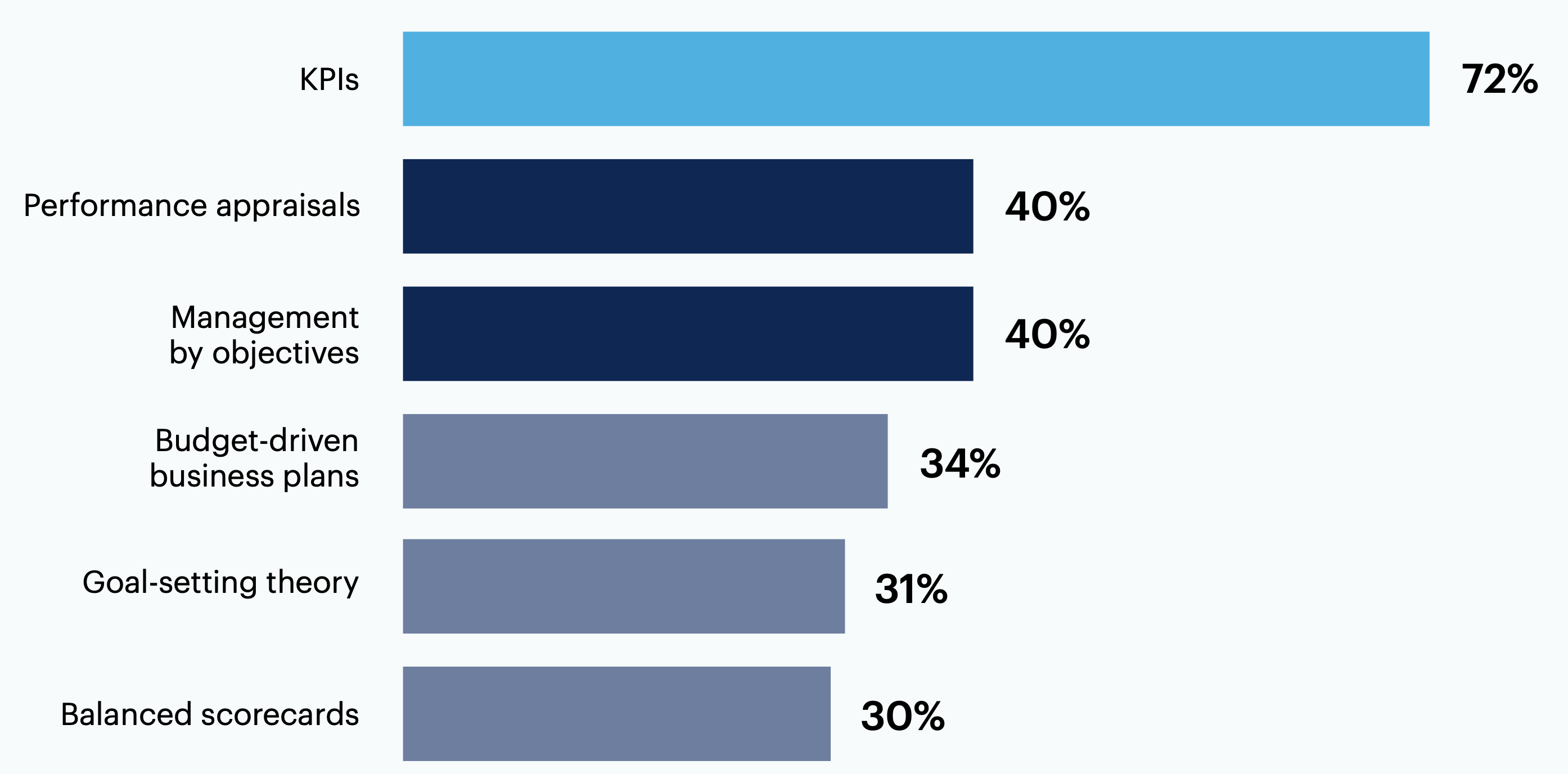
n = 100
OKRs 24% | HR-driven systems 23% | Six sigma 9% | None of these 0%
When asked what strategies they use to improve the performance of their marketing team, 74% of surveyed marketing leaders selected setting clear goals and objectives from the top down. Using performance metrics (72%), and providing ongoing training and development (65%) were the second and third most selected strategies.
What strategies do you use to improve the performance of the marketing team? Select all that apply.
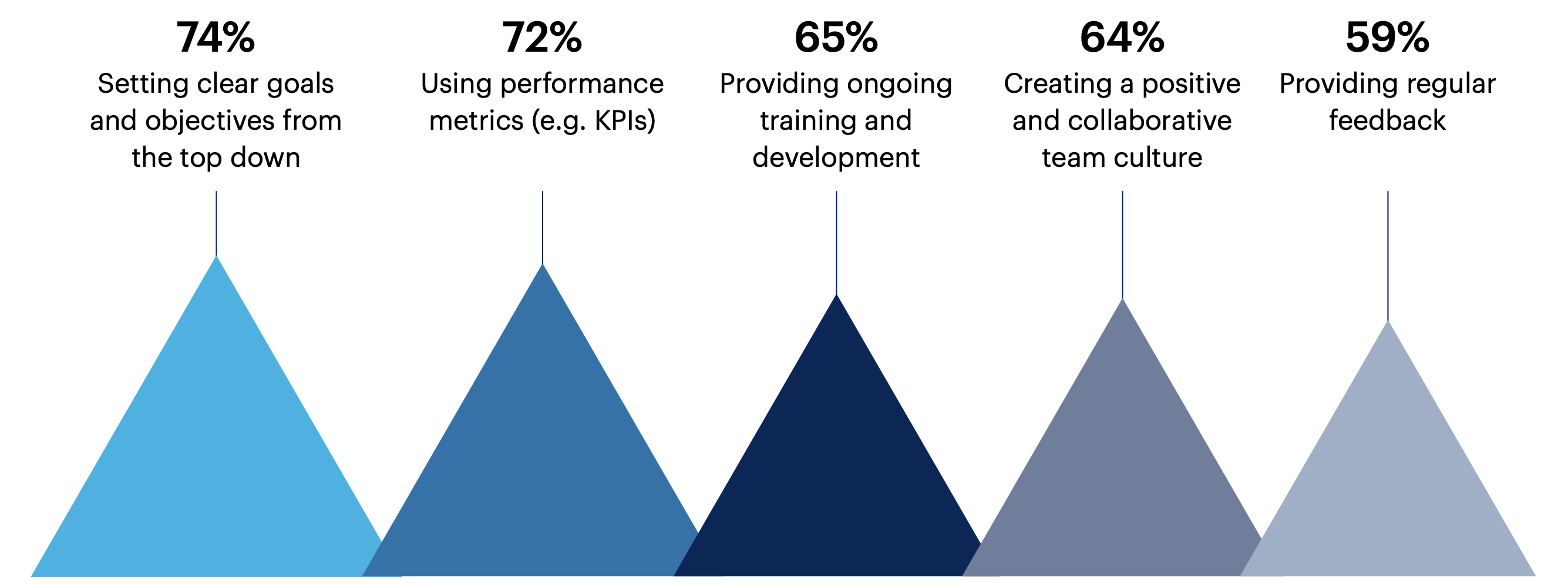
n = 100
Identifying bottlenecks 47% | Advocating for the team at a senior level 40% | Celebrating success 40% | Encouraging innovation 39% | None of these 1%
Question: What advice would you give to other marketing leaders in regard to evaluating marketing team performance?
Clear individual goals (KPIs and scorecards) aligned with overall marketing goals helps in bringing clarity. Additional backup like training, mentoring, etc., can boost it further.
Ensure that you have clear goal setting and the same is communicated well to all employees.
One-on-one meetings are how most marketing leaders deliver feedback to marketing teams, and how they prefer to receive feedback from team members
How do you provide feedback to team members about their performance? Select all that apply.
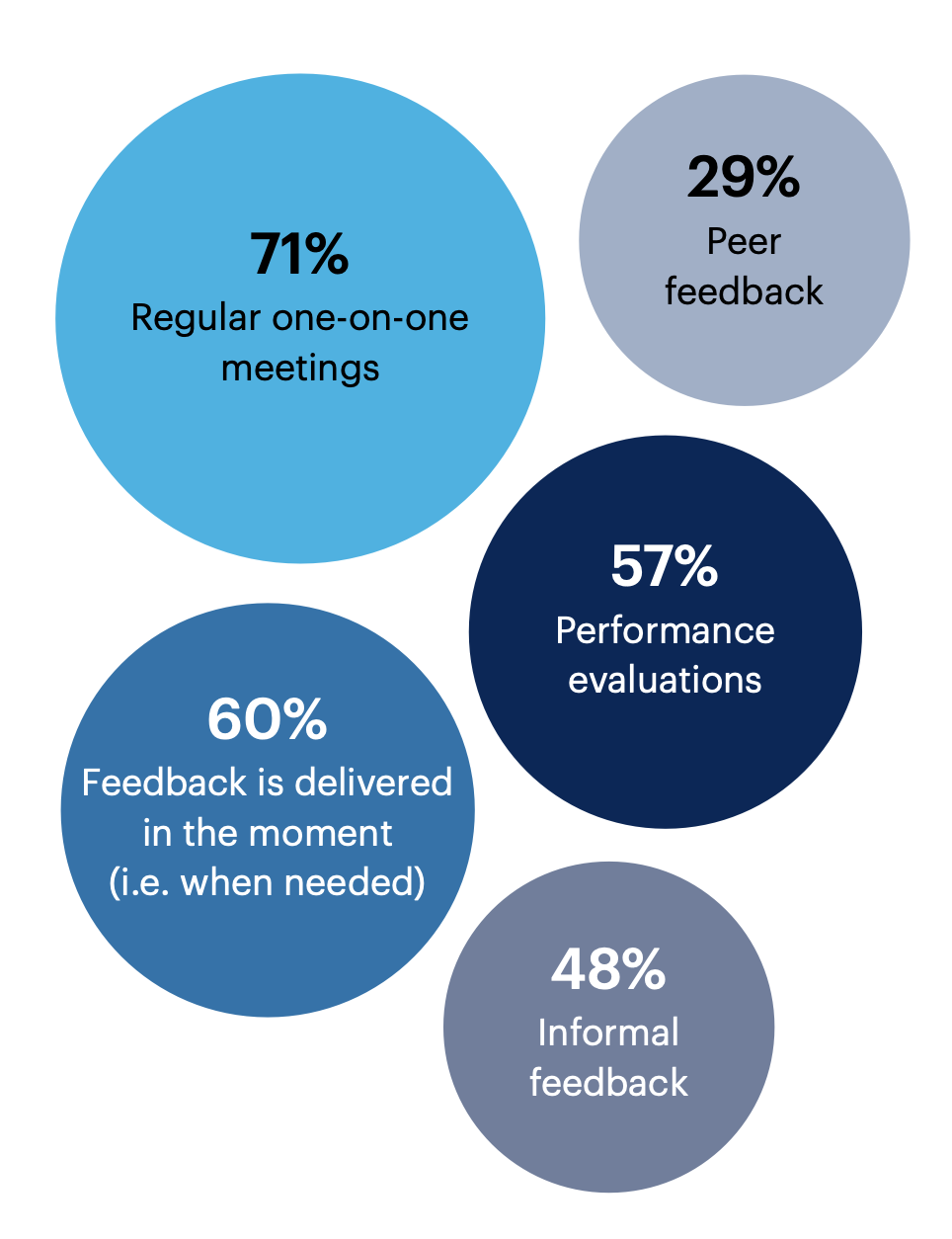
When asked how marketing leaders prefer to provide feedback to team members about their performance, the most selected methods are regular one-on-one meetings (71%), in the moment feedback (60%), and performance evaluations (57%).
Written feedback 25% | 360-degree feedback 25% | None of these 0%
n = 100
Similarly, over a third of marketing leaders (38%) prefer their team members to give upwards feedback during one-on-one meetings.
How do you prefer team members to give feedback to you?
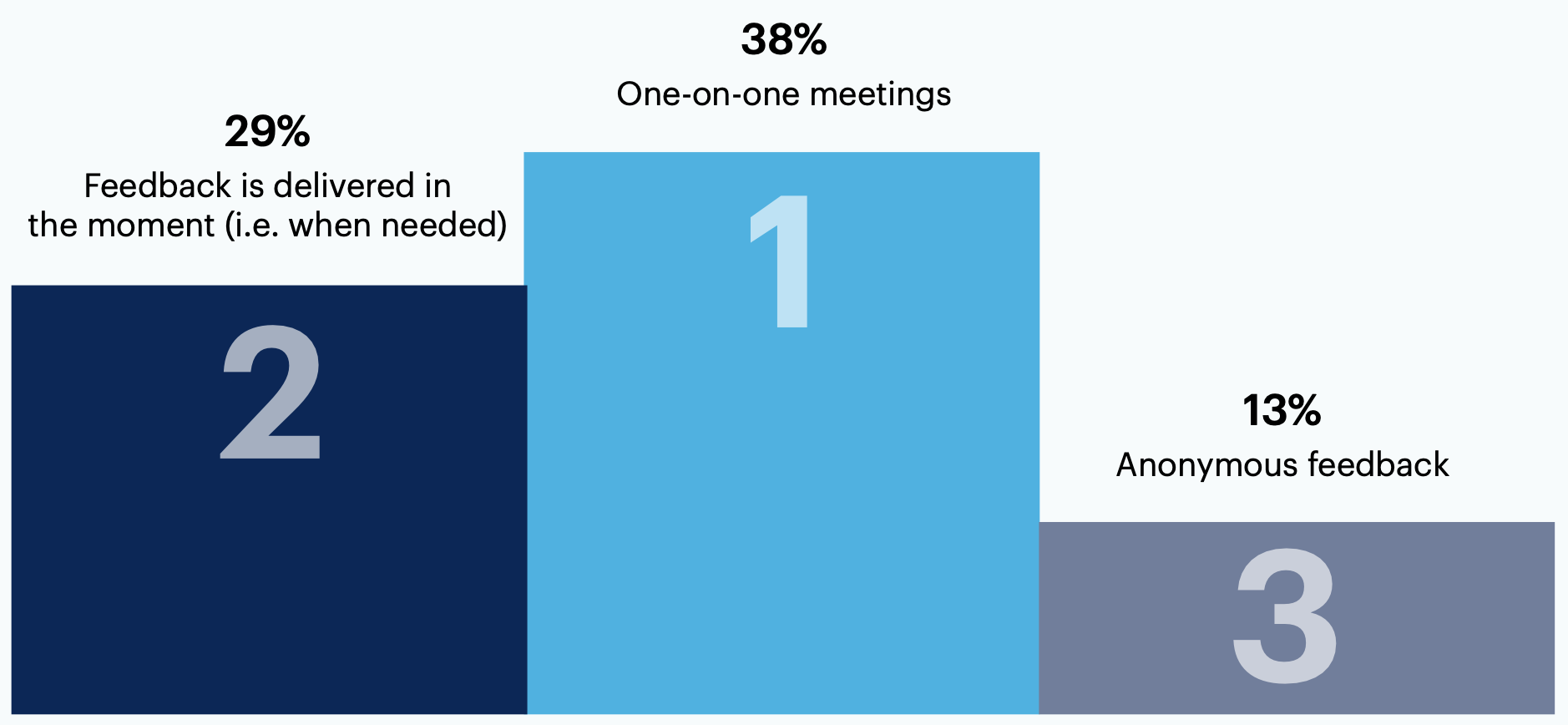
n = 100
Team meetings 8% | Performance evaluations 7% | 360-degree feedback 3% | HR conducted surveys 2% | None of these 0%
Question: What advice would you give to other marketing leaders in regard to evaluating marketing team performance?
Real time feedback is best, positive or negative. Make the metrics visible and talk about regularly as a cross functional team.
Be human and provide direct feedback that's actionable and efficiently delivered.
The majority of marketing leaders say they spend more time on high performing employees, and agree that high performers should be rewarded with promotional/growth opportunities
Most marketing leaders (39%), say they spend more time on high performing employees than on low performing employees. 36% of leaders say they spend equal time on both groups, while just 25% say they spend more time on low performers.
Do you spend more time on high performing employees or low performing employees?
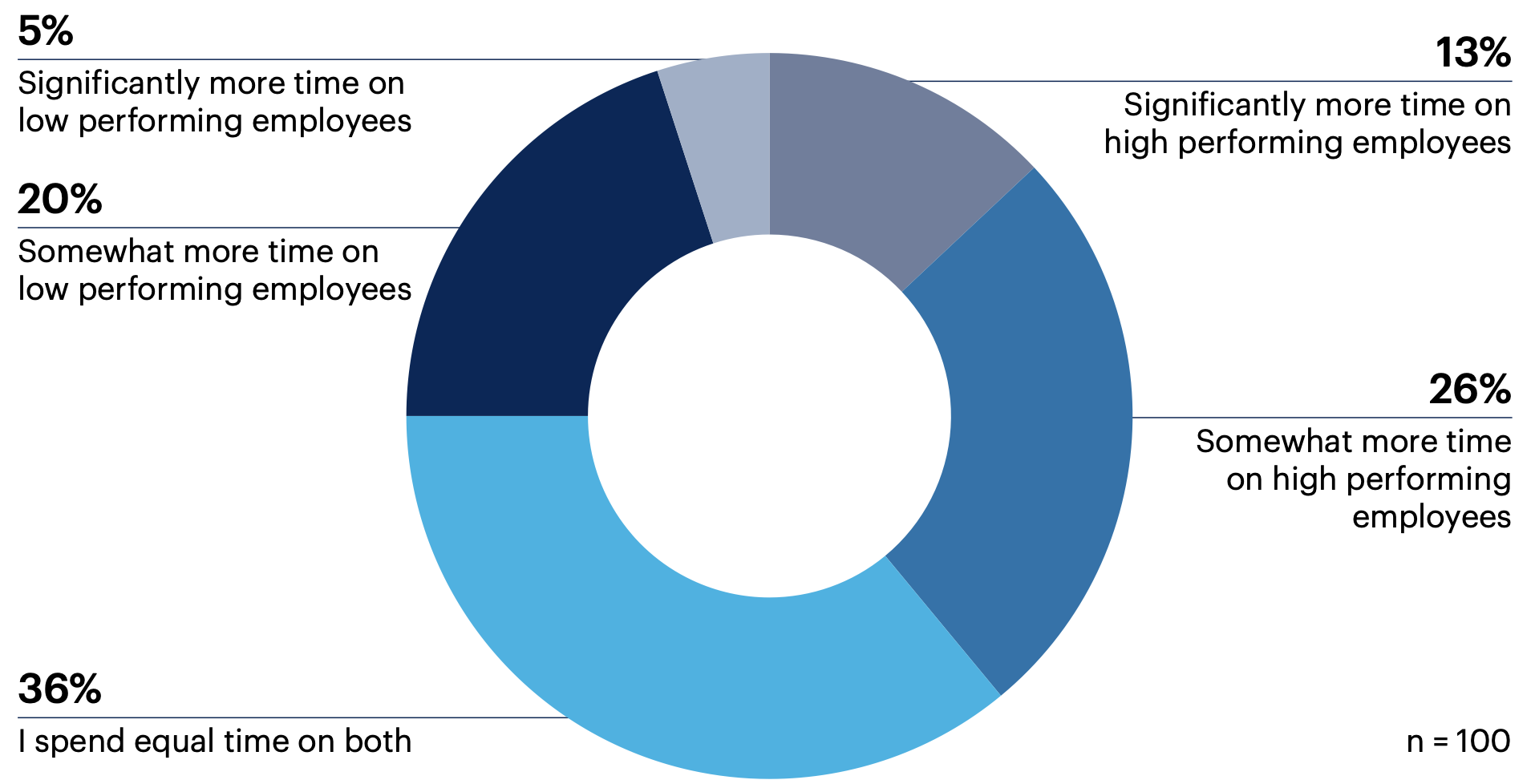
Marketing leaders agree that the best ways to handle underperforming employees is to build a performance management plan, offer a coaching plan, and provide direct feedback.
What are the best ways to handle underperforming team members?
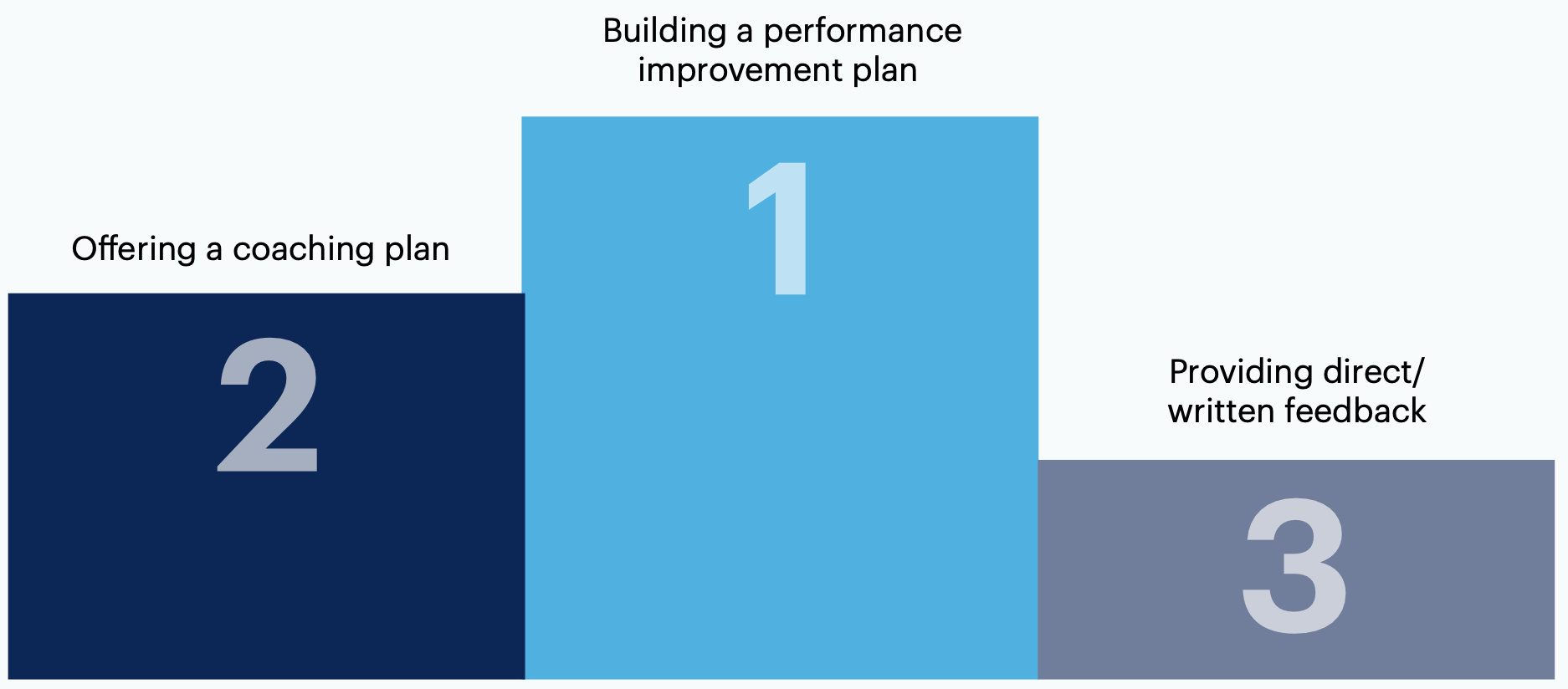
n = 100
Investigating personal life issues that may be impacting work performance | Providing new communication channels with leadership | Considering additional resources (i.e. additional staffing, tools, etc.) | Creating a buddy system for marketing campaigns
Marketing leaders agree that providing advancement opportunities or promotions is the best way to reward your high performing team members. Public recognition and additional financial incentives are also top ranked choices.
What are the best ways to reward high performing team members?
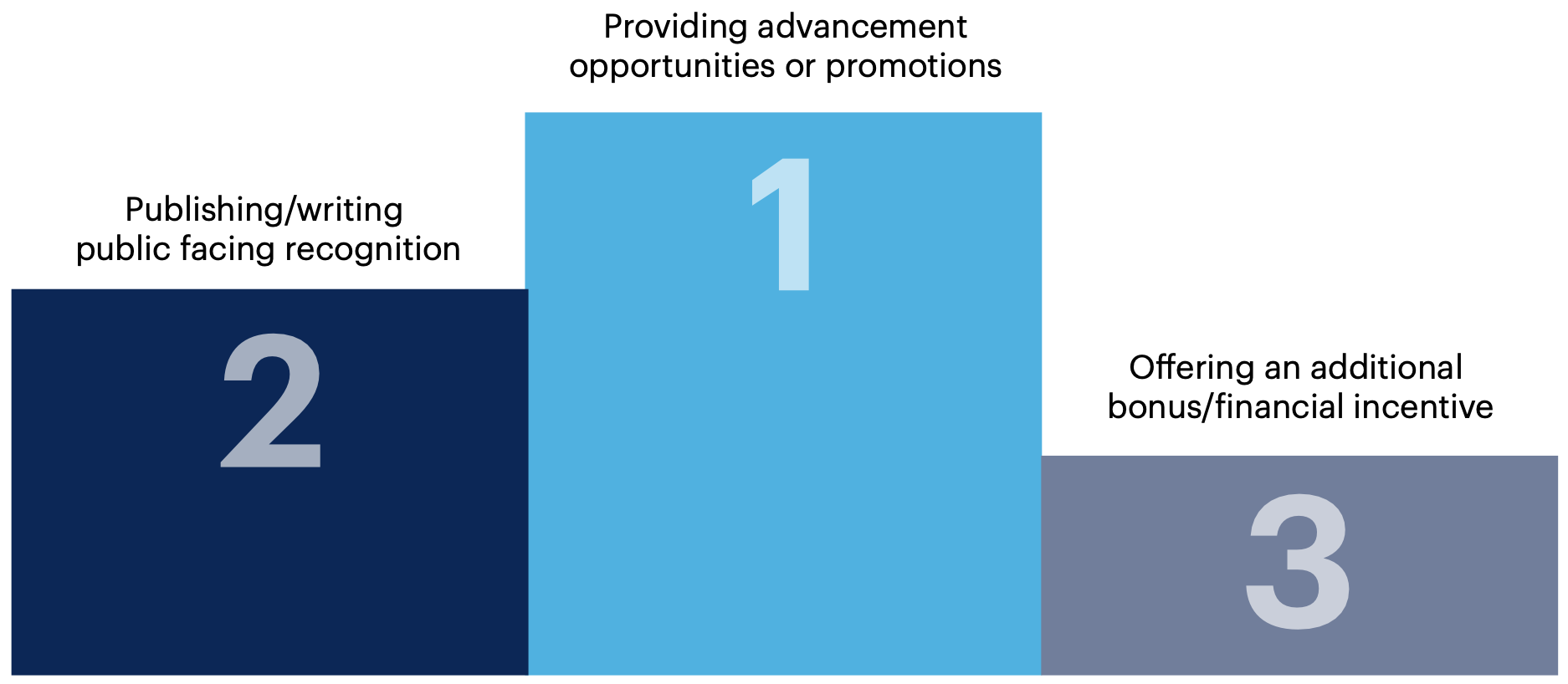
n = 100
Offering commission based incentives for hitting marketing objectives | Giving additional time off | Providing special perks (e.g. special parking, access to company events, etc.) | Other (fill in)
The vast majority of marketing leaders report that they strongly (34%) or somewhat (58%) agree that they have the tools they need to ensure their marketing team’s goals are aligned with organizational objectives. Just 1% of marketing leaders disagrees.
How do you feel about the following: I have the tools I need to ensure the marketing team's goals are aligned with the overall goals and objectives of my organization.
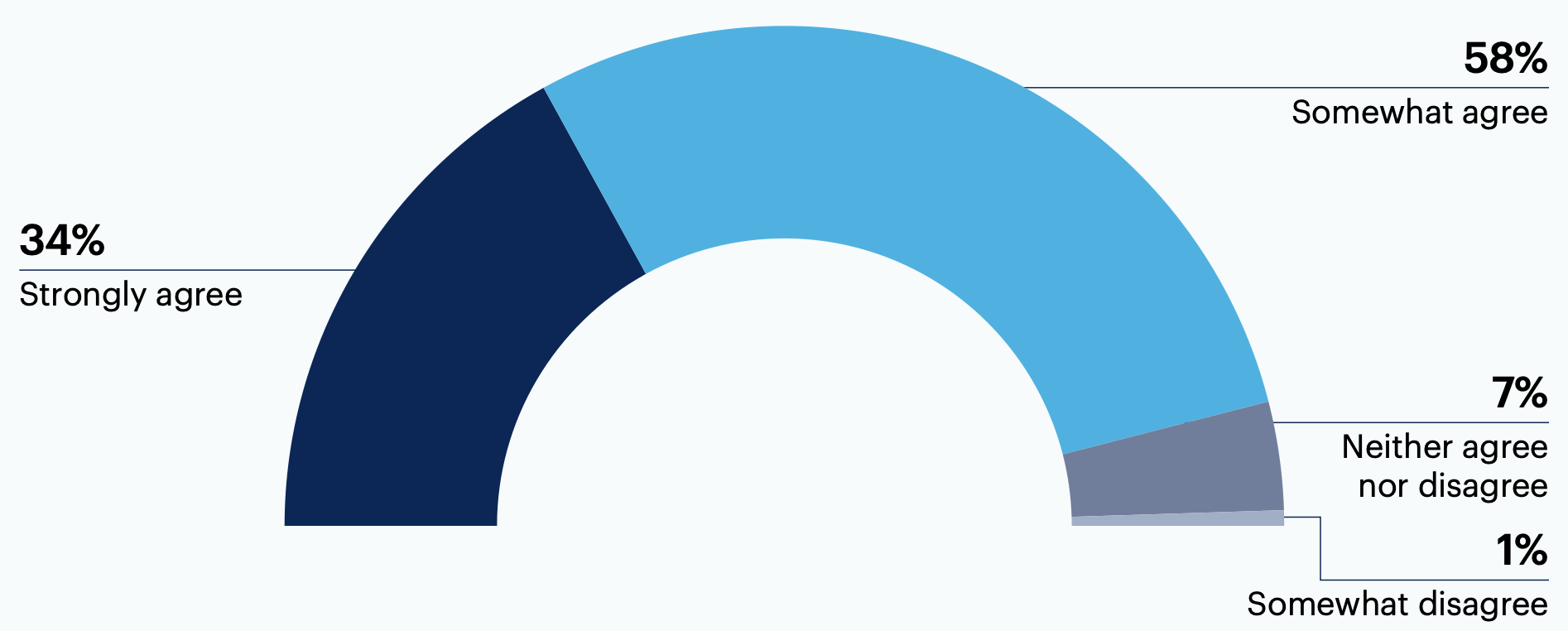
n = 100
Strongly disagree 0%
Question: What advice would you give to other marketing leaders in regard to evaluating marketing team performance?
Recognize high performers based on performance and get them what they are worth. Too many times I have heard we don’t have enough budget, and so we are constrained and can’t recognize employees for what they are worth.
Focusing on the performance of each individual separately, the results they offer in their work should be rewarded, since that is significant and allows each one to try a little more.
One to one feedback is essential, leaders have to set clear goals, build trust and support the team with the resources they need (needs emerge in the one to one meetings).

Want more insights like this from leaders like yourself?
Click here to explore the revamped, retooled and reimagined Gartner Peer Community. You'll get access to synthesized insights and engaging discussions from a community of your peers.
Respondent Breakdown
